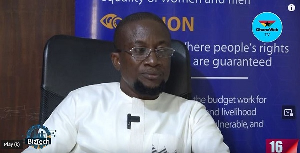The catchphrase of most people these days is that, democracy has come to stay in Ghana. But to be able to derive the best from it, we must be seen to be working assiduously towards its sustenance. This largely depends on the level of commitment all the stakeholders, especially political parties show in this regard. Unfortunately, the contrary prevails where the NPP is concerned.
The politics of ethnocentrism and of religion are two known enemies to any democracy. Ethnic politics is dangerous and the tragic experiences of Rwanda and Burundi are cases that readily come to mind.
Religious politics on the other hand has its own nasty story to tell with the examples of the frequent religious conflicts in Nigeria and elsewhere to show. One can therefore imagine the quantum of damage to be expected if this canker is extended onto the national arena.
Unfortunately, the NPP since 1992 has engaged in this dangerous kind of politicking. The Rawlings administration was branded an Ewe dominated government and the Ghanaian electorate was asked to vote against the NDC on that basis. Even now, the press secretary of the NPP, Kwadjo Afari, calls the NDC a Volta party.
But during the primaries of the NPP towards the up coming elections, the party's General Secretary, Mr. Dan Botwe stated that, for strategic reasons, some constituencies in Greater Accra had been reserved for only Ga natives. The NPP's resort to ethnocentrism calling the practice "strategic" can only be described as unfortunate.
In the 2000 elections, the NPP decided to play a different but equally dangerous card - the religious card. The selection of Alhaji Aliu Mahama as President Kufuor's running mate became a major "religious song" of the NPP. Consequently, the Moslem population was impressed upon to reject the NDC.
Men live to be haunted by the evil that they commit. The religious card played by the NPP in 2000 had a boomerang effect on the party this year. President Kufuor was faced with the difficult decision to replace the vice president with a non Moslem as his running mate, but could not eat back his own words. He therefore had to reluctantly retain Alhaji Aliu Mahama as his running mate for the 2004 elections. Perhaps, he took this decision with the hope that Prof. Mills would choose a non Moslem as his running mate only to have the shock of his life.
Alhaji Mohammed Mumuni's nomination as running mate to Prof. Mills has apparently thrown NPP's campaign out of gear. His nomination no doubts, has truncated the religious political game the NPP intended to play. Unlike the NPP, Alhaji Mohammed Mumuni's choice as running mate for Prof. Mills is seen more as one based on competence rather than on religion.
There have been some comments from members of other opposition parties' including NDC to the effect that the NPP government is an Ashanti dominated one. The reality however, is that, what exist now is a family and nepotistic government. President Kufuor only uses the Ashanti flavour as a cover-up. It would be recalled that the people of Kumasi demonstrated against Mr. Kufuor's election as the flag bearer of the NPP in the 1996 elections.
A careful assessment of the various governments that this nation has had so far would single out the NPP government and its parent, the PP government, as the only ones that have resorted to playing this dangerous game at the expense of the unity of the Ghanaian people.
Dr. Kwame Nkrumah set the pace by equitably distributing the resources of this nation without any ethnic or religious considerations. Ex-President Rawlings distinctively demonstrated that he is a Ghanaian first, before any tribal concerns. If the ex-president were self-centered, his home region, the Volta region, would have been among the most developed regions today. But the NDC's love for mother Ghana, not tribes or religions had kept him focused.
The ex-President is not a Moslem, but his government did for the Moslems what Napoleon could not do. That has been the order of the day in the NDC. The party has a national face and the concerns of any group, are treated as national problems, no wonder the NDC has seats in all regions of Ghana but NPP can boast of seats in only 8 out of the 10 regions.
Regional balance in political appointments is a must! However, it must be devoid of religious sentiments. The ideal thing to do in our party politics is the NDC example. We must endeavor to discard the dangerous phenomenon being pursued by the NPP from our body politics. Should we give it room to operate, we definitely will have ourselves to blame in the near future.
Politics of Tuesday, 5 October 2004
Source: Lens
















